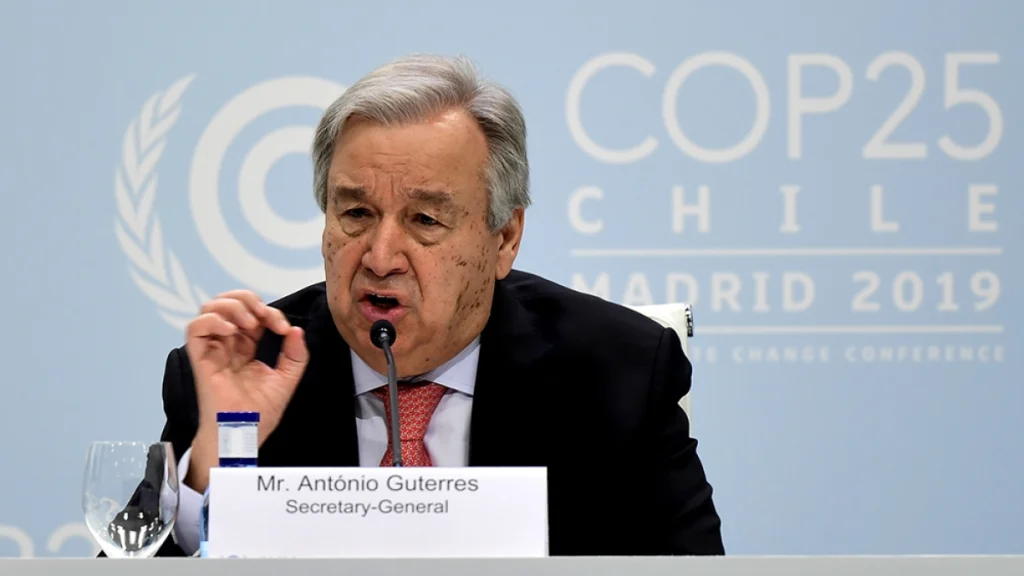UNITEDNATIONS/During a dialogue with women civil society leaders in the UN General Assembly Hall last week; Secretary-General António Guterres heard about the critical need to make digital technology safer for women and girls; and to ensure that they are equal participants in global conservations; both online and in-person.
The town hall with representatives from non-governmental organizations; (NGOs) was held as part of the annual session of the UN Committee on the Status of Women (CSW); which meets in New York every March.
Its latest two-week session – known as CSW67; which runs through Friday – is focused on the theme of innovation; technological change, and education in the digital age.
Civil society also used the town to appeal for more action on other issues critical to women and girls; such as greater representation at the UN, ending the war in Ukraine, and eliminating all forms of gender-based violence.
A Male-Dominated World
In remarks before the dialogue, the Secretary-General spoke of the backslide in women’s and girls’ rights globally after years of incremental progress.
“Many of the challenges we face today – from conflicts to climate chaos and the cost-of-living crisis – are the result of what is a male-dominated world with a male-dominated culture, taking the key decisions that guide our world,” he said.
Newfound Discrimination
Mr. Guterres noted that digital technology – the product of an industry that is predominantly male; represents a new source of discrimination and bias.
“Rather than presenting facts and addressing bias, technology based on incomplete data and badly-designed algorithms is digitizing and amplifying sexism – with deadly consequences,” he said.
“Medical decisions based on data essentially from men can damage women’s health. Safety features based on men’s bodies can put women’s lives at risk; namely in the car industry,” he added, citing examples.

The gender digital divide is fast becoming the new face of gender inequality, he continued. Online spaces are not safe for women and girls, as they have been attacked, targeted, or denigrated on the internet.
Furthermore, “while 12 men have walked on the moon, not a single woman has done so,” he said, pointing to stereotypes that “push girls away from studying science, engineering, and math, and strangle the careers of women scientists.”
Keep Pushing Forward
Mr. Guterres said the situation must change, and in the face of the “patriarchal pushback”, the international community must push forward for women, girls, and the world.
“Policymakers must create – and in some circumstances must reinforce to create – transformative change by promoting women and girls’ equal rights and opportunities to learn; by dismantling barriers and smashing glass ceilings,” he said.
He also called for all leaders to urgently take up UN recommendations that promote education; and training in digital skills for women and girls; as well as algorithms that align with human rights and gender equality, among other measures.
Punish Cybercrime
At the outset of the dialogue – which was moderated by Sima Bahous, Executive Director of UN Women – the Secretary-General insisted that participants should not only ask him questions, but also offer comments, suggestions, and ideas.
He interacted with them in groups of three, first listening to their interventions as a whole; and then responding to the individual issues they raised.
Houry Geudelekian, Chair of NGO CSW New York, was the first to speak. She stressed that countries must find a way to hold perpetrators accountable for online violence targeting women and girls.
“Cybercrime should be punishable in the same way as any other crime,” she said. “Member States and the private sector have the power to reverse the regression in gender equality; and uplift women and girls in all their diversity.”
Speaking in her capacity; she also called for the international community to reduce military spending by five percent; and instead channel the funding towards sustainable development efforts.
Young Women Demand Change
Prabhleen Tuteja, Executive Director of YP, the Youth Foundation, asked the Secretary-General about the greater representation of young women at the UN, particularly to ensure “feminist, intersectional and inter-generational leadership”.
Meanwhile, Rania Harrara from Morocco reported that young leaders were “pretty disappointed”; that the town hall was taking place at the same time as a dialogue for youth representatives.
She highlighted other concerns around access to UN facilities, adding that many young people from the Global South could not take part in the conversation due to barriers such as lack of funding and visa issues.
“Equality and meaningful youth engagement are about digital access; digital literacy, and digital safety for all adolescent girls in all of their diversity,” she said.
UN “Rejuvenation”
The Secretary-General said he was surprised to hear about these impediments as the instructions; were to allow all attendees to enter the UN facilities.
Addressing the wider issue of youth participation, Mr. Guterres noted that while the UN has a strategy on gender parity; it has yet to adopt one for the “rejuvenation” of the Organization.
“We need to have a younger UN,” he insisted. “Young generations are better prepared than me to look into; for instance, the impacts of digital technologies in the way governance takes place globally.”
The Secretary-General also agreed with Ms. Geudelekian’s call for greater accountability for cyber attacks against women and girls, which he said is a matter that UN Member States should seriously examine.
A Plea On Ukraine
One participant who said she represented Ukrainian women; gave emotional testimony about how the war has affected families in her homeland.
She reported that the independent delegation of Ukrainian women wrote to the Secretary-General last October; requesting that he “immediately change the status of the United Nations”.
She underlined support for developing a new global mechanism to protect all countries from aggression; which drew applause from the room.
Mr. Guterres recalled that the conflict has generated the biggest refugee crisis since the Second World War, with women and children comprising the majority of those fleeing Ukraine.
Source: UN News Agency


